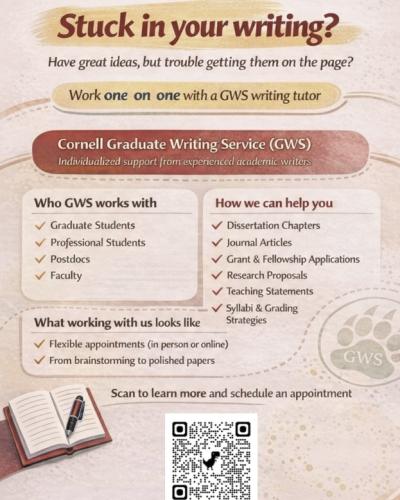The KNIGHTLYnews is an online forum where FWS instructors and other teachers of writing can swap and share ideas for best classroom practice. Weekly posts are designed to help teachers develop lesson plans and writing assignments, and respond to classroom challenges by introducing new teaching tools and sharing emerging pedagogical ideas. Posts also direct readers to program and campus resources that support teaching and learning, and provide opportunities for peer collaboration and mentorship. #teachlikeabear
When talking with instructors about students struggling with academics—or facing struggles that affect academic performance—I first advise addressing problems as soon as they become visible. Communicate with students one-on-one. Be direct and respectful. Face-to-face conversations—a good place to start—are more personal. Email—a good follow-up—creates a paper trail. Whatever you do, don’t let problems fester.
Of course, there may be circumstances when direct approaches don’t yield results. Sometimes the problems instructors observe are enmeshed in communication issues. Students miss classes, which makes it hard to talk about missing classes. Instructors send email: students don’t respond. When communication is difficult—or insufficient—consider the “Academic Concern” form (accessible under the “Help” button on your Canvas home page).
When deciding whether to submit an academic concern form, remember: you are not tattling. You are throwing a lifeline.
If certain issues are affecting a student’s performance in your class, there’s a reasonable chance they are affecting performance in other classes.
Here’s why sharing information is so important, especially for FWS instructors.
Early intervention matters. If a student is struggling academically, or struggling with issues that affect academic performance, getting support for the student increases the odds that they can turn things around before they reach a crisis. Many students struggle with academics, especially during their first year, for reasons that have little to do with their potential for academic success. Time management, for example, can play a huge role.
FWS instructors sometimes notice problems others miss. The FWS is probably a first-year student’s smallest class. A student who is struggling in your class may be struggling in other classes. But you may be the first one to notice.
One teacher only knows what’s going on in one class. Academic advising offices receive information from multiple sources. Information shared via the academic concern form is routed to the academic advising offices in Cornell’s schools and colleges. Information sharing makes it possible for advising offices to know when a student is having trouble in more than one class. Arts and Sciences Advising Director Ray Kim says that one of the office’s top priorities is making contact with any student who tagged with an academic concern report by more than one instructor.
You’re a teacher: not a therapist, pastor, or health care professional. Some issues go beyond the scope of a writing teacher’s responsibilities. For example, mental health issues or family emergencies can have a huge impact on a students’ academic performance. Writing teachers can be compassionate and supportive, but they cannot be the primary source of support.
For example, if a student has to leave town for a family funeral, I don’t want to be the only person on campus who knows. I always encourage students to notify their academic advising office. Sometimes I contact the office myself.
What the form doesn’t tell you. Some teachers submit an academic concern form and then hear back from the student: this may come as an unpleasant surprise. Here’s what’s happening.
After you select a student’s name, you see two notices at the top of the online form:
- If you select ONLY issues from the ACADEMIC PROGRESS CONCERNS listed below, the student will receive an IMMEDIATE MESSAGE from their academic advising office offering support.
- If you select ANY issues from the "OTHER CONCERNS" listed below, NO AUTOMATED MESSAGE will be sent to the student. An advisor may reach out to you for more context.
What the first message does not indicate is that the first paragraph of the IMMEDIATE MESSAGE the student receives begins:
- Your instructor has brought it to our attention that you may need some academic support in CLASS NAME.
In other words, students will know which instructor expressed concerns about their performance.
I only learned recently that the class name was included in the notification letter. Some instructors don’t mind that their students get this news. After all, filing this report is an attempt to help: it’s not disciplinary action. One instructor recently told me the student followed by expressing their thanks.
Still, I wasn’t thrilled by the news, mostly because I encourage instructors to use the form liberally. If the dynamics between student and instructor are already challenging, the news that the instructor filed an “academic concern” letter might not improve things. Some instructors might be hesitant to submit the form. One instructor I spoke to was surprised when a student emailed and said something like, “Why do you think I have a problem?”
Is this Hack necessary? Click “other.” While it would probably be better if there were a more transparent way to avoid an uncomfortable response from a student, there is a hack. If you select any message from “other concerns” the automatic letter to the student does not get sent—even if you also check a box under “academic progress concerns.”
It’s possible I’ve never heard from a student when I’ve submitted this form, because I always include some narrative component in the “Explanation of issues” box under “Other concerns.” (My narrative approach is quite different from procedures followed in some large lecture classes, when letters about under-performing students are batch-submitted after prelims). I asked Ray Kim if the advising offices appreciate the narrative component: he gave me an emphatic “Yes.” He added: “Context always helps.”
Knowing what I’ve recently learned about how academic concern letters are routed, I still advise teachers to keep academic advising offices informed of student struggles; I continue to use it myself. The academic concern form is a key source of information for student support offices.
If you have suggestions about how this form could be more useful for FWS instructors, email me. I will aggregate whatever I hear and share it with academic advising.




